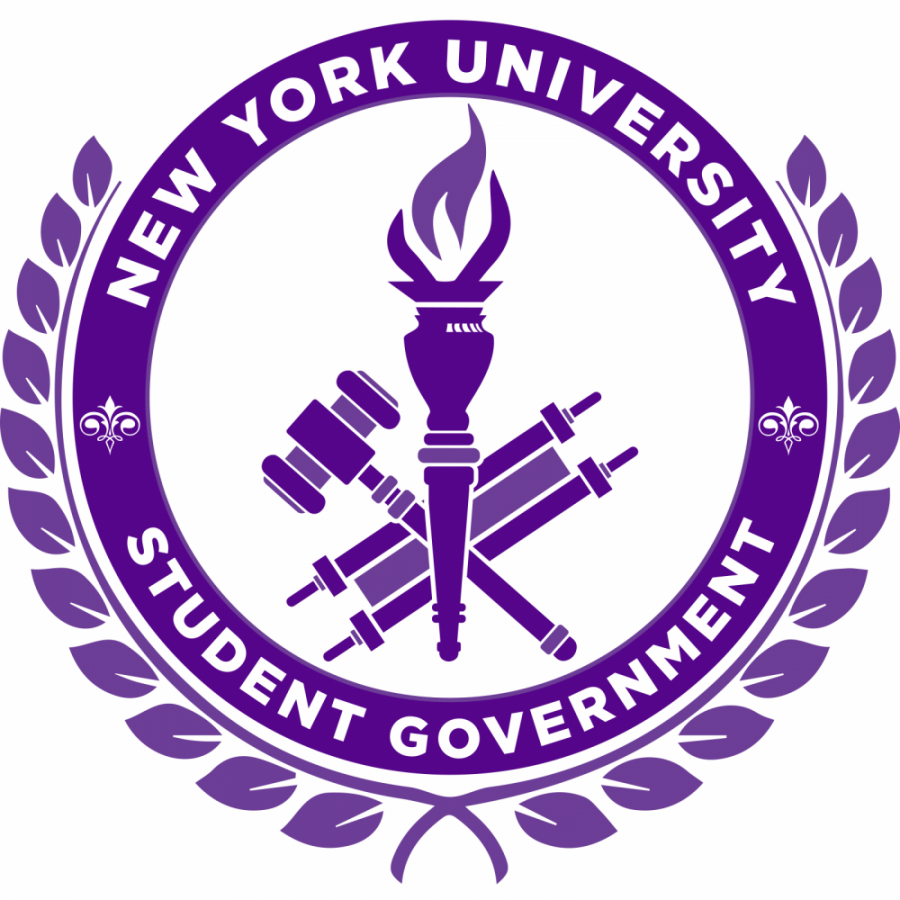The University Senate will hold its first meeting of the spring 2019 semester on Valentine’s Day. It will be the first opportunity for the University Senate to potentially present on three resolutions that passed in the Student Government Assembly last semester.
The fact that these resolutions — including the Resolution For Decarbonization, the Resolution on the University Wide Request for Information and the Resolution on the Human Rights of Palestinians — have not reached the University Senate is a point of concern for the resolutions’ leaders.
Co-author of the Resolution on the University Wide Request for Information and the Resolution on Human Rights of Palestinians, CAS senior Bayan Abubakr, was apprehensive about whether these resolutions would make it to the University Senate.
“Getting either Resolution passed would be an accomplishment, and honestly, a bit of a surprise,” Abubakr said in an email to WSN. “[The] administration has not been receptive to either Resolution, and I understand that they think it is not in their best interests to move forward [as a University] with either one.”
Resolutions that SGA passes are supposed to be reviewed by the Executive Committee. After the committee completes its review, the resolution is presented to the University Senate. All three resolutions are in different stages of this process.
The decarbonization resolution review has been completed and the information resolution will be reviewed in the coming weeks.
The University released a statement opposing the Resolution on the Human Rights of Palestinians four days after it passed in Student Government, saying that the resolution would not move forward.
The administration’s opposition towards the Palestinian resolution has caused authors of the information resolution to doubt whether or not it will ever reach the University Senate.
“While lobbying the other university senators is difficult as is, an administration that is actively planning to keep it off the agenda only makes our work more challenging,” said CAS senior Ben Zinevich, who co-authored the information resolution and the Palestinian resolution.
While the authors of these two resolutions maintain that they are facing pushback from the administration, the Resolution for Decarbonization has been reviewed, and the administration has been much more receptive to some of the measures. University spokesperson Shonna Keogan said in an email to WSN that a statement regarding university sustainability will be made in the coming weeks.
However, authors of the Resolution on the University Wide Request for Information seem convinced that key administrative leaders oppose the proposal because they don’t want to increase transparency.
“The fellow authors and I have spoken to certain committee members about the resolution,” Zinevich said. “But we’re dismayed to hear that [Senior Vice President of Student Affairs] Marc Wais, [President] Andrew Hamilton and other administration members have positioned themselves as an opponent of a transparent university.”
Member of the University Senate’s Committee on Organization and Governance and current NYU Law student David Moosmann said that the committee is currently looking to review the resolution and consult students and the administration. They hope to find a way to pare down the resolution so that the implementation is feasible, while still adhering to the authors’ original message of transparency.
Moosmann also said he does not believe there is any significant hostility to this resolution and instead thinks that the administration is trying to be cautious when it comes to such a high-impact resolution.
“My view is that when you have something that is this complex and this important, it’s better that it be done right than done quickly,” Moosmann said. “This is not a non-binding resolution that just makes a political statement. This is something that is designed to make a real policy change and statement, so it’s natural that it’s going to take time.”
Moosmann went on to say the three most important aspects considered in this review process are the cost, various privacy concerns and including university competitiveness in negotiation settings. The last issue, competitiveness, is what the administration is primarily focused on during this review process.
“Of course, disclosure and transparency have value, but sometimes overdisclosure doesn’t help our strategic position, like when we want to negotiate a contract, or something like that,” Moosmann said. “While there is not an official line position on this issue, it is something people are thinking about.”
Whether or not the University Senate votes on this resolution, Zinevich said this should be a concern of the students, who should take matters into their own hands.
“What we should look to is seeing who we can continue building coalitions with outside of the student community and across the University, be it through faculty, staff, activist groups and other university actors,” Zinevich said. “While these measures of transparency and declassification are common in other universities, it is going to take a lot to get the administration to listen to those asking for divestment, transparency and democracy.”
A version of this article appeared in the Monday, Feb. 10, 2019, print edition. Email Mansee Khurana at [email protected].























































































































































